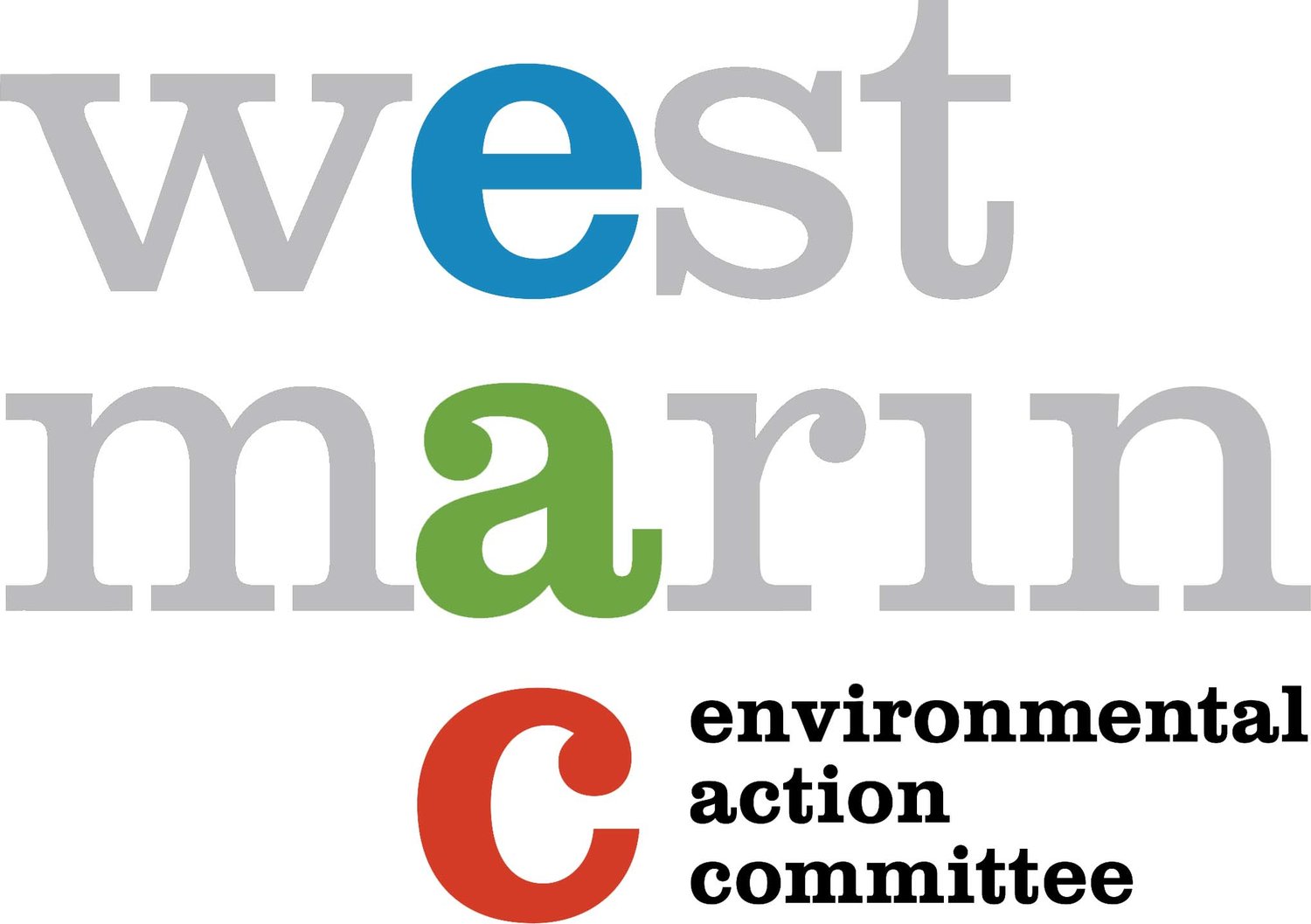Governor Gavin Newsom needs to stand up for the California Coastal Act and the Coastal Commission, which were created through voter support in Proposition 20 nearly 50 years ago. The federal officials’ recent threat to withhold disaster funding is a cruel attack on Los Angeles residents who have already lost so much.
Victory for Drakes Estero!
BREAKING! Good news: EAC's petition to turn Drakes Estero into a full marine reserve was approved unanimously at the California Fish and Game Commission meeting in Sacramento on December 11th.
What Does This Mean for Public Access?
The proposed change will not impact public access at all. You will still be able to enjoy the Estero by paddle or foot.
What will Change?
Once the regulation is changed, recreational clamming will no longer be allowed at this location, further protecting the marine biodiversity.
EAC Presents MPA Petitions at the Golden Gate Collaborative & Mapping
On September 26, 2024, EAC was invited to present at the Golden Gate Collaborative meeting, which was held at the San Francisco Zoo. EAC’s Executive Director, Ashley Eagle-Gibbs presented our marine protected area (MPA) petitions. EAC’s Program Director was also in attendance remotely, and she is one of the Golden Gate Collaborative Co-chairs. Other topics of the meeting included 30x30 public comment on the Draft Framework, group, and collaborative updates.
Sara Worden of the California Fish and Wildlife Department (CDFW) also presented the next steps for the petition process, including prioritizing the review of Bin 1 petitions, which includes EAC’s Drakes Estero petition.
Communications Intern Reports from the Sanctuary Advisory Council
EAC Advocates for MPAs and Fisheries Management at the Fish and Game Commission
On July 17th, Ashley Eagle-Gibbs (EAC Executive Director) and Amina Khribeche (EAC Legal & Policy summer intern) participated in the Fish and Game Commission’s Marine Resources Committee meeting in Santa Rosa. The July 17th meeting was focused on Marine Protected Area (MPA) regulation change petitions evaluation process and changes to our existing MPA network for adaptive management.
On July 18th, Amina attended the Committee meeting virtually to speak on fisheries and aquaculture issues including, fishery bycatch evaluation for fisheries management review, and applications for new aquaculture leases.
Victory in Protecting the CA Coastal Act
California’s coast is one of the state’s most valuable and scenic resources. Our state boasts over 420 public beaches and approximately 840 miles of coastline, extending from the border of Mexico up to the state of Oregon. Unlike most states, within the California Constitution, the guarantee to the public right of access to our state’s beaches, ocean, and navigable waterways is enshrined. Each and every person is entitled to the enjoyment of our coastline, its recreational opportunities, its beauty, and the natural resources it has to offer.
Given the pristine and diverse nature of California’s coast, it is of paramount concern that the entire coast be protected and preserved, along with the regulatory mechanisms that protect it, such as the California Coastal Act. Unfortunately, the Act has been under attack recently, where housing is being pitted against our coastal resources. Read about EAC's victory in protecting the Act!
Cleaner California Coast - A Leave No Trace Initiative
Over the past year, we played a pivotal role as the fiscal sponsor for the Cleaner California Coast Initiative, managing efforts across Marin, Sonoma, and Mendocino counties. This initiative aims to preserve California's coastal regions through public education, community engagement, and conservation activities, promoting responsible recreation and reducing pollution. By partnering with the Leave No Trace organization and local, state, and federal working group members, we ensured the use of best practices for environmental stewardship.
Fran Pavley on Coastal Protection: EAC Exclusive
There's a popular belief among some members of the state Legislature that coastal protection policies are preventing developers from building multifamily housing in coastal cities.
But where’s the evidence? When pressed, supporters of bills like AB 2560—a proposal to strip away environmental and public access regulations in exchange for more dense housing in the coastal zone—simply point to the complaints from disgruntled developers.
EAC Team Participates in California Ocean Day
On May 7th, Ashley, Leslie, and Grace went to California's capital to advocate for policies that protect our ocean and coast!
We advocated primarily on phasing out single-use plastic materials, the importance of marine protected areas, making state beaches equitable and accessible for all, engaging tribes and communities in offshore wind, and against AB 2560 a bill that attacks the Coastal Act. We were joined by CALPIRG students who led the plastics advocacy, pushing for a plastic bag ban.
CA Aquaculture Criteria Nearly Finalized
An important topic at the California Fish and Game Commission's July Marine Resources Committee meeting was Aquaculture Leasing in California (Item 4) and specifically, the development of public interest criteria to help guide the Fish and Game Commission and the Fish and Wildlife Department in their new leasing decisions, so that the Commission can ensure newly sited leases take into account important considerations such as impacts to our sensitive coastal environment, eelgrass habitat, recreation, and navigation. We have been engaged in the development of these criteria for the last couple of years, and we are excited that the criteria are close to being finalized. Draft 3 will be released shortly and reviewed at the August Fish and Game Commission meeting next week.
Support California’s MPA Network
The EAC team including our stellar summer interns participated at the California Fish and Game Commission's Marine Resources Committee meeting in-person in Petaluma in July to advocate for our Marine Protected Areas (or MPAs).
We spoke on a few agenda items including Marine Protected Areas (MPA) Decadal Management Review (Item 5), which is the focus of this article.
Before we dive into the meeting debrief, we wanted to share a little bit about California’s network of MPAs and how they were created.
Development of Aquaculture Public Interest Criteria
The Fish and Game Commission is in the process of developing criteria for when a new aquaculture lease is or is not found to be in the public interest, which is required under state law. Public interest criteria will be applied when new lease applications are submitted — like the proposed lease by San Andreas Shellfish near the mouth of Tomales Bay. In 2022, EAC participated in a number of public meetings on this topic, attended workshops, coordinated with partners and agency staff, and reviewed and commented on two rounds of draft criteria.
California’s Aquaculture Action Plan
EAC has been actively following the development of the statewide aquaculture action plan, advocating for a strong plan consistent with the Ocean Protection Council’s strategic plan that explicitly identifies and addresses marine aquaculture impacts. We participated in a working group on this topic, we have spoken at agency meetings, and we meet with OPC staff. In December 2022, we submitted a detailed comment letter with 9 partners, providing feedback on the finalized statewide Guiding Principles for Sustainable Marine Aquaculture and feedback on the forthcoming aquaculture action plan. Our letter also included our collective opposition to marine finfish.
Protecting Tomales Bay and California’s Estuaries in 2022
To ensure the Bay remains healthy and thriving, we advocate to protect wildlife and sensitive habitats from harmful industrial, commercial, and excessive recreational development activities.
We fight for consistent management strategies, enforcement, and strong permit conditions; and we engage with state resource management agencies to improve oversight, compliance, and planning guidance.
We work to protect coastal resources, like eelgrass (Zostera marina), species of special concern, endangered and native species, marine mammals, and shore and waterbirds in Tomales Bay and beyond.
2022 was a busy year for our Healthy Tomales Bay campaign!
Tomales Bay Oyster Co. Coastal Development Permit Approved
The Coastal Commission unanimously approved the Tomales Bay Oyster Company’s existing shellfish aquaculture operations permit at the August 10th Commission Meeting including conditions to help safeguard eelgrass habitat in the future.
The "conditions provide support for many species in the bay: the coho salmon, brant...” said Ashley Eagle-Gibbs, EAC legal and policy director, “There have been significant declines in shorebirds on Tomales Bay. It’s great that this operator is now in compliance and there are strong protections for habitat and eelgrass.”
Public Interest Criteria Move Forward for CA Aquaculture
As part of our healthy Tomales Bay campaign, we monitor our local aquaculture industry to make sure it’s sustainable and any new leases are located in areas that are not harmful to the environment. . We work to ensure that coastal resources, like eelgrass, species of special concern, endangered and native species, marine mammals, and shore and waterbirds are protected in Tomales Bay and beyond.
This month, the Fish and Game Commission (Commission) Marine Resources Committee will be reviewing new public interest criteria guidelines to use for their review of new aquaculture lease considerations. Essentially, this is a first-step checklist for the Commission to review when a new lease application is received that will help the Commission to make an informed decision whether that lease should be (or should not be) allowed to move forward based on the public’s best interest.
Celebrating Ocean Day by Cleaning Up the Beach
We celebrated World Ocean Day on June 8th by cleaning up Drakes Beach and providing plastic pollution education with volunteers organized by SipSmith.
World Ocean Day is a good opportunity to raise awareness around the struggles our global oceans face including plastic pollution. In a world of single use plastics, our oceans are filling up with trash. Virtually every piece of plastic that was ever made still exists, breaking down into smaller and smaller fragments or microplastic.
Hydraulic Clamming Pumps Now Banned!
With increases in recreational fishing during the pandemic, here in West Marin we witnessed an increase in clamming and the use of hydraulic pumps. Hydraulic pumps can collect a full day's worth of clams at varying tide levels in just a few minutes and leave behind significant habitat damage. As part of our work to ensure environmentally responsible fisheries, we successfully advocated with partners for an emergency statewide ban of hydraulic pumps for harvesting clams, sand crabs, and shrimp. This spring, we were thrilled when the Fish and Game Commission applied a permanent rule to fully ban the use of these tools for harvesting clams, sand crabs, and shrimp. Our spring Legal and Policy intern, Rachel Clyde, joined our advocacy on this topic, speaking at the Fish and Game Commission meetings in the winter and spring of 2022.
Advocating for our Oceans at the 17th Annual CA Ocean Day
On March 29th, our team participated in the 17th annual California Ocean Day. This is an incredible state-wide event that brings leaders, experts, and advocates together to discuss current ocean conservation efforts and how we can improve them.
There were a variety of panels and speakers made up of leaders in ocean conservation that shared their insight on 30x30 (state and national effort to conserve 30% of land and water by 2030), microplastics, Chumash tribal conservation work and more. We always appreciate opportunities to learn from our colleagues and advocate for ocean policy.
Tell the Fish & Game Commission What Tomales Bay Means to You!
On March 24th, the California Fish and Game’s Marine Resources Committee (MRC) will be discussing aquaculture leasing in California. If you are a member of the public who enjoys Tomales Bay, we need you to send in a note about how you enjoy Tomales Bay (example: fishing, boating, birding, wildlife watching, clamming, kayaking, the protection of environmentally sensitive habitat areas, etc.). Can you send an email to the Commission by Monday, March 21st at 12pm.? Send your email to fgc@fgc.ca.gov. Comments submitted by noon on 3/21 will be provided to the Commissioners the day of the meeting. Thank you to our members and constituents that already sent in comments!



